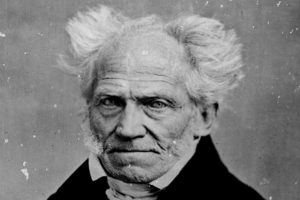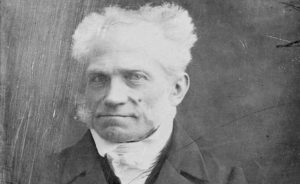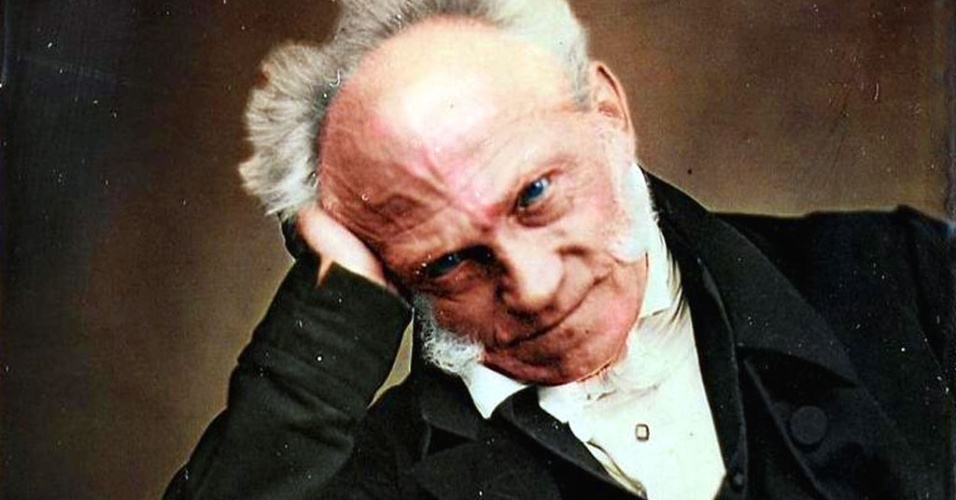Arthur Schopenhauer was a German philosopher. He’s best known for his 1818 work The World As Will and Representation, wherein he characterizes the phenomenal world as the product of a blind and insatiable metaphysical will. Take a look below for 30 more interesting and fascinating facts about Arthur Schopenhauer.
1. Proceeding from the transcendental idealism of Immanuel Kant, Schopenhauer developed an atheistic metaphysical and ethical system that has been described as an exemplary manifestation of philosophical pessimism.
2. Schopenhauer was among the first thinkers in Western philosophy to share and affirm significant tenets of Eastern philosophy, having initially arrived at similar conclusions as the result of his own philosophical work.
3. Though his work failed to garner substantial attention during his life, Schopenhauer has had a posthumous impact across various disciplines, including philosophy, literature and science.
4. His writing on aesthetics, morality and psychology would exert important influence on thinkers and artists throughout the 19th and 20th centuries.
5. He was born on February 22, 1788, in Danzig, to Johanna Schopenhauer and Heinrich Floris Schopenhauer.

6. Both of his parents were descendants of wealthy German patrician families.
7. His father died in 1805. It’s generally believed that he committed suicide.
8. Schopenhauer’s mother, a writer and an intellectual, started a literary salon in Weimar after her husband’s death. He had a strained relationship with his mother.
9. He was an intelligent young boy who enrolled at the University of Gottingen in 1809.
10. At the University of Gottingen, Schopenhauer studied metaphysics and psychology under Gottlob Ernst Schulze and was especially influenced by the ideas of Plato and Immanuel Kant.
11. He attended lectures by the prominent post-Kantian philosopher Johann Gottlieb Fichte and the theologian Friedrich Schleiermacher in Berlin in 1811.
12. In 1814, he began working on The World as Will and Representation.

13. It took him a few years to complete The World as Will and Representation, which was ultimately published in 1818.
14. Schopenhauer became a lecturer at the University of Berlin in 1820. However, he was unable to find success in his academic career as only five students turned up for his lecture, forcing him to drop out of academia.
15. In 1831, he wrote a sarcastic treatise, The Art of Being Right: 38 Ways to Win an Argument.” In this work, he gave 38 methods of beating an opponent in a debate.
16. He published an essays, On the Freedom of the Will, in which he tried to answer the academic question, “Is it possible to demonstrate human free will from self-consciousness?”
17. His essays was published by the Royal Norwegian Society of Sciences in 1839.
18. In 1851, Schopenhauer wrote an essay, Of Women, in which he described the women as less reasonable and lacking the capacity to make decisions.
19. In his Of Women essay, he referred to women as the “weaker sex.”

20. His single greatest work, The World as Will and Representation, remains his greatest piece of work. The book is a philosophical genius in every sense as the author tries to illustrate non-rationality and universality as the supreme force behind the existence of both animate beings and inanimate objects.
21. Schopenhauer never married, but had a relationship with Caroline Richter, an opera singer, beginning in 1821.
22. He hated his mother’s literary salon and was shocked by the fact that she had forgotten about his father, who passed away some years ago.
23. At the outbreak of cholera, he left Berlin for Frankfurt in 1833 and lived there alone, except for his pet poodles which gave him company.
24. Through he had good health, in 1860, his health began to deteriorate and he died of heart failure on September 21, 1860, while sitting at home on his couch with his cat.
25. He believed that the actions of all human beings lacked direction and that desire is the root of all evils.

26. According to Schopenhauer, pain and suffering are directly proportional to desire as it creates frustration upon the failure of attaining a particular goal or object.
27. He was of the opinion that desire never ends, which means that after achieving something, the desire for a new goal creeps in. This is a cycle which continues for an indefinite period.
28. Schopenhauer’s theory is being viewed and researched by many modern philosophers as an antecedent of the theory of evolution and the modern evolutionary psychology.
29. His views on women were mostly anti-feminist and for him, “woman is by nature meant to obey.”
30. He believed in the monistic philosophy and stated that there is fundamentally no different between human beings and animals.




